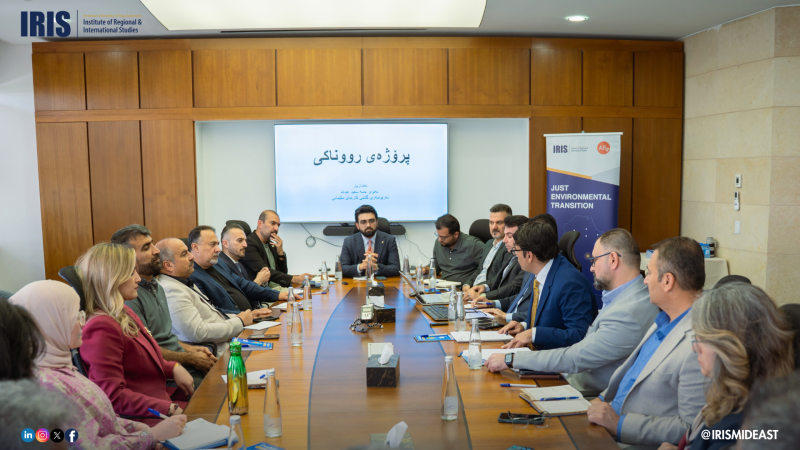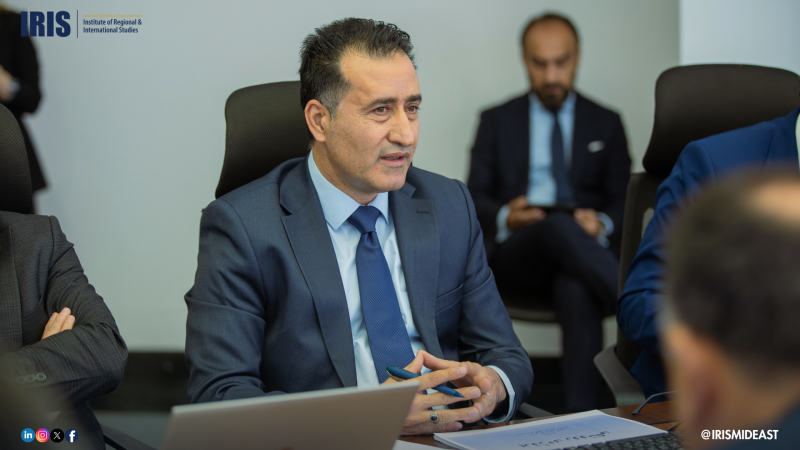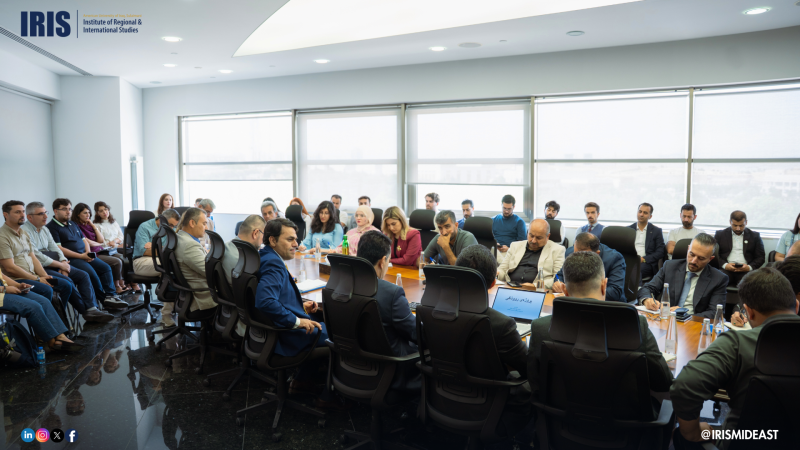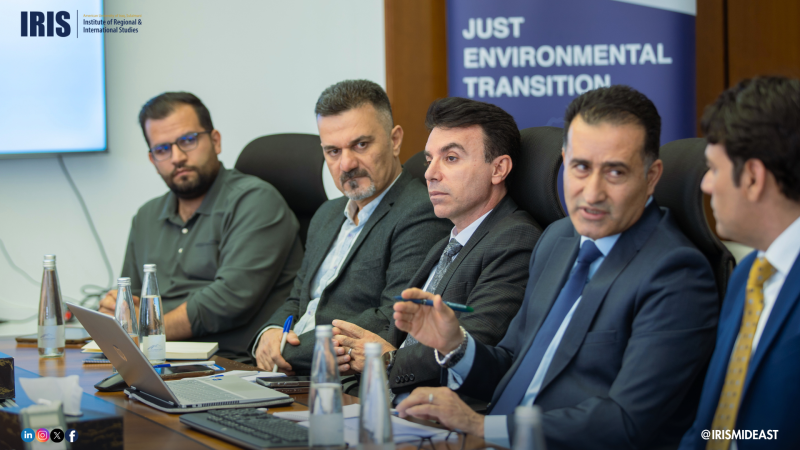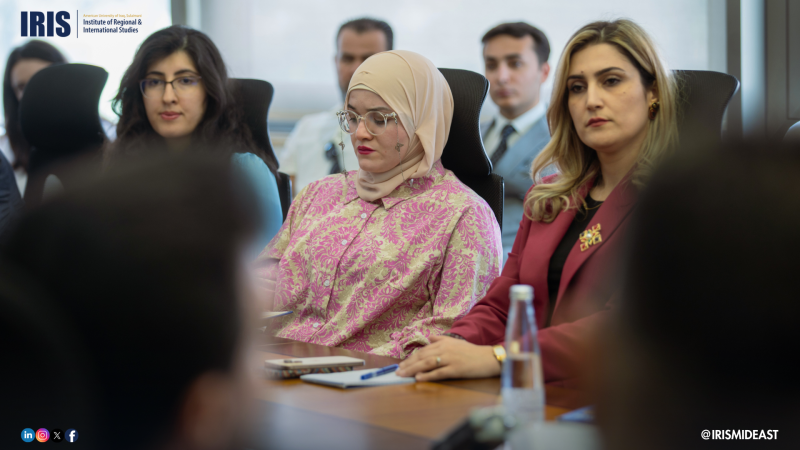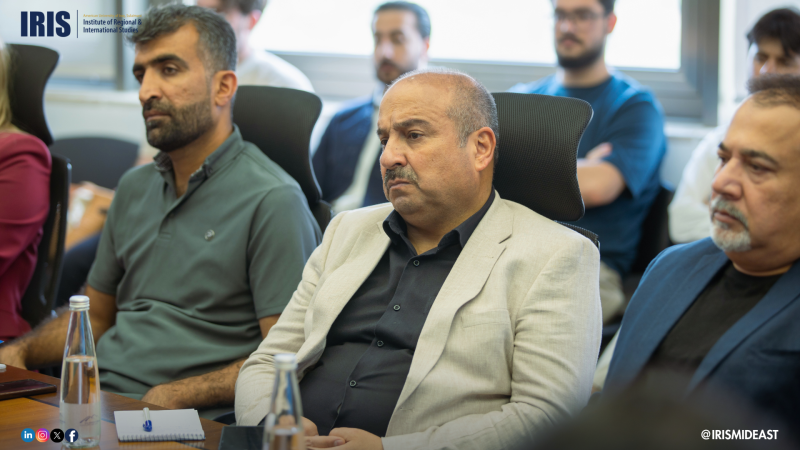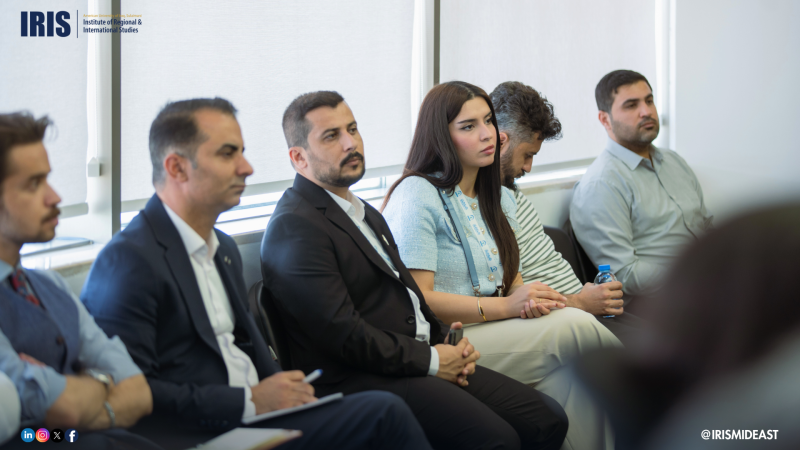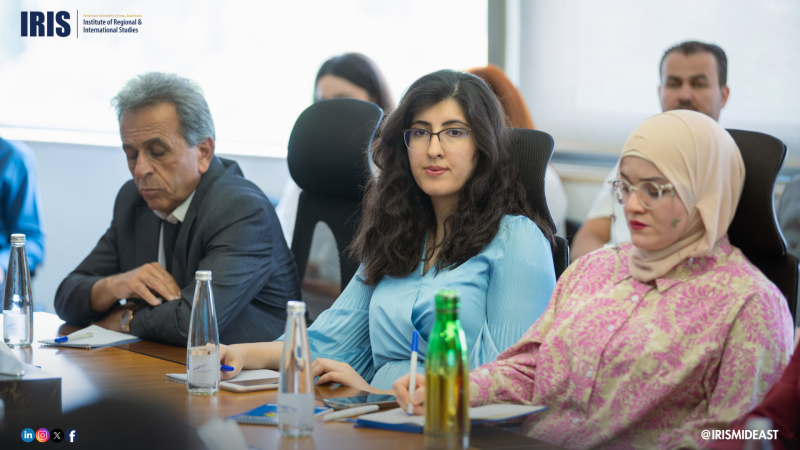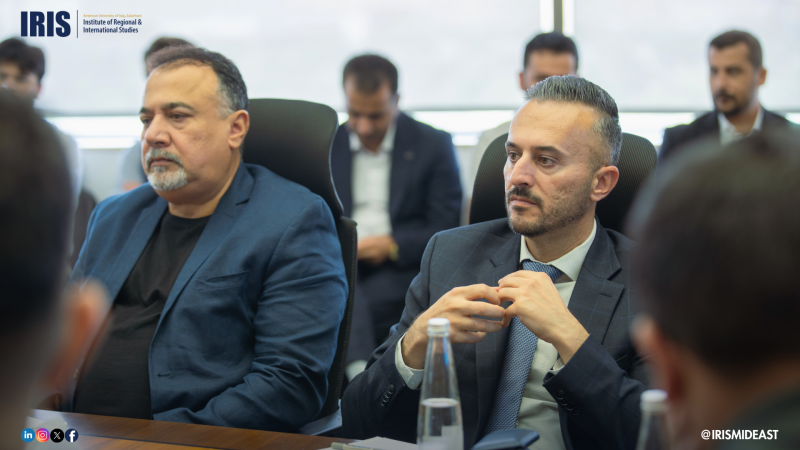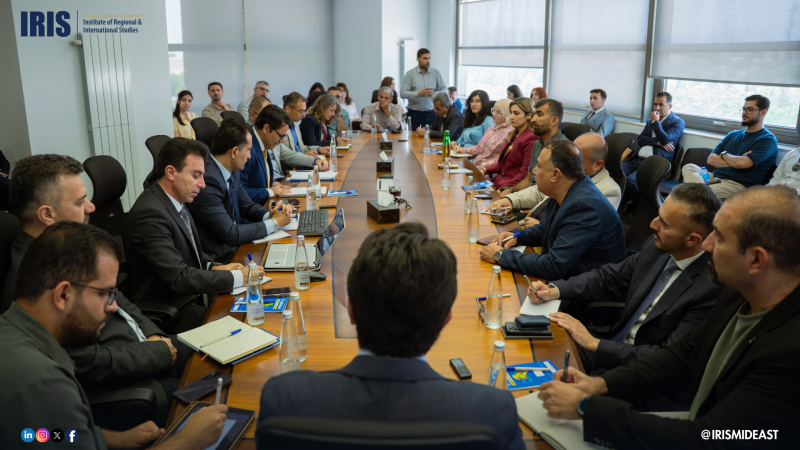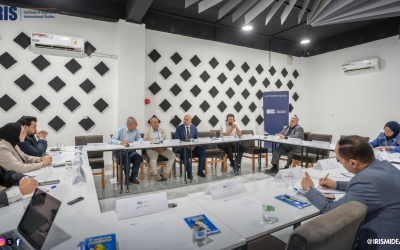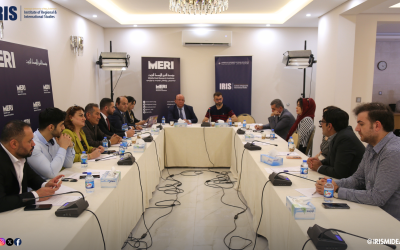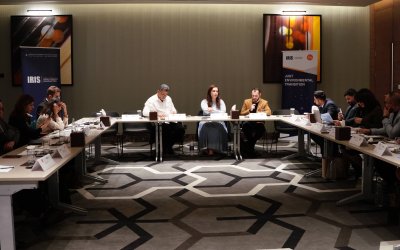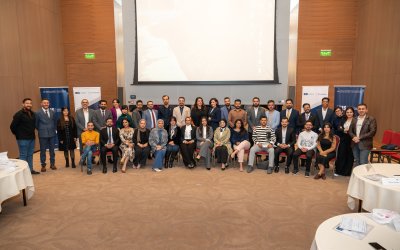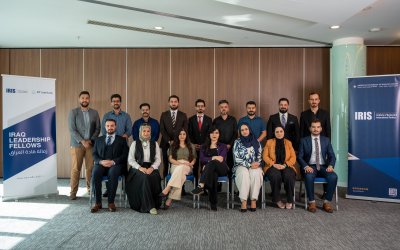On May 28, 2025, the Institute of Regional and International Studies (IRIS) at the American University of Iraq, Sulaimani (AUIS), in partnership with the Arab Reform Initiative (ARI), hosted a discussion entitled “The Energy Transition in the Kurdistan Region of Iraq” as part of the Just Energy Transition project.
As the Kurdistan Region of Iraq (KRI) faces mounting environmental and energy policy challenges, the discussion focused on key debates surrounding the region’s energy transition. The event primarily explored reform initiatives led by the Kurdistan Regional Government (KRG) to address ongoing electricity shortages. Central to these reforms is the Runaki Project, which aims to establish a unified system intended to provide 24-hour electricity across the KRI through a paid service model.
This project is relevant to the concept of a Just Energy Transition, as it emphasizes the challenges of ensuring equitable and fair access to electricity, while also highlighting the financial burdens involved that are likely to impact lower-income communities the most. The discussion also addressed issues such as gas flaring and explored potential pathways for achieving a more just and sustainable energy future in the region.
The event brought together academics, NGO representatives, and activists from the region, along with guest speakers including:
• Anwar Hama Saeed, Director General of Electricity, Sulaymaniyah Governorate
• Dr. Ahmed Fatih, Member of Council, Kirkuk Governorate
• Twana Jaffer, Plant Manager, Asia Al-Taqa Al-Mutajadida
• Mohammed Hussein, Reporter and Analyst, Iraq Oil Report
During the discussion, concerns were raised about the financial burden the Runaki Project may place on low-income communities, as well as the potential job losses for those employed by local generators. In response to these issues, Anwar Hama Saeed, Director General of Electricity in Sulaymaniyah Governorate stated:
We are aware of the outcomes of the Runaki Project, particularly the potential job losses for those employed by local generators. In response, we have submitted a formal proposal to the KRG to provide contract-based job opportunities for the affected employees; however, it is still pending. This project presents a reform of the entire electricity sector in the Kurdistan Region of Iraq, it is the KRG’s last hope for solving the electricity issues, and it also provides permanent and cheaper electricity bills to the citizens of the region.
- Anwar Hama Saeed, Director General of Electricity in Sulaymaniyah Governorate
Furthermore, as more attention turns to sustainable solutions, questions have been asked about the potential for additional initiatives like the Municipal Solid Waste (MSW) Treatment project in Sulaymaniyah, which produces Refuse Derived Fuel (RDF) to reduce the volume of waste sent to the plant’s environmentally conscious landfill. In response, Twana Jaffar, Plant Manager at Asia Al-taqa Al-Mutajadida, shared:
Unfortunately, the KRG has not provided support for renewable and clean energy projects like ours. As a result, our team who works on a project like the (MSW) which initiates renewable energy had to take on responsibilities that should have been handled by the government.
- Twana Jaffar, Plant Manager, Asia Al-taqa Al-Mutajadida
As discussions around the Runaki Project continue, they also focused on the amount of gas in which the KRG currently has to supply it. In response, Muhammed Hussein, Reporter and Analyst at Iraq Oil Report, stated:
It is essential that the KRG establishes long-term contracts with gas-producing companies to ensure a stable and reliable supply of gas for the Runaki project.
- Muhammed Hussein, Reporter and Analyst at Iraq Oil Report
The event highlighted both the urgency and complexity of achieving a Just Energy Transition in the Kurdistan Region of Iraq. While reform projects like the Runaki Project offer potential solutions to long-standing electricity challenges, they also raise important questions about affordability, equity, and long-term sustainability. The insights shared by experts stressed the need for stronger government support, especially for renewable energy initiatives, and emphasized the importance of inclusive policies that address the needs of vulnerable communities.

